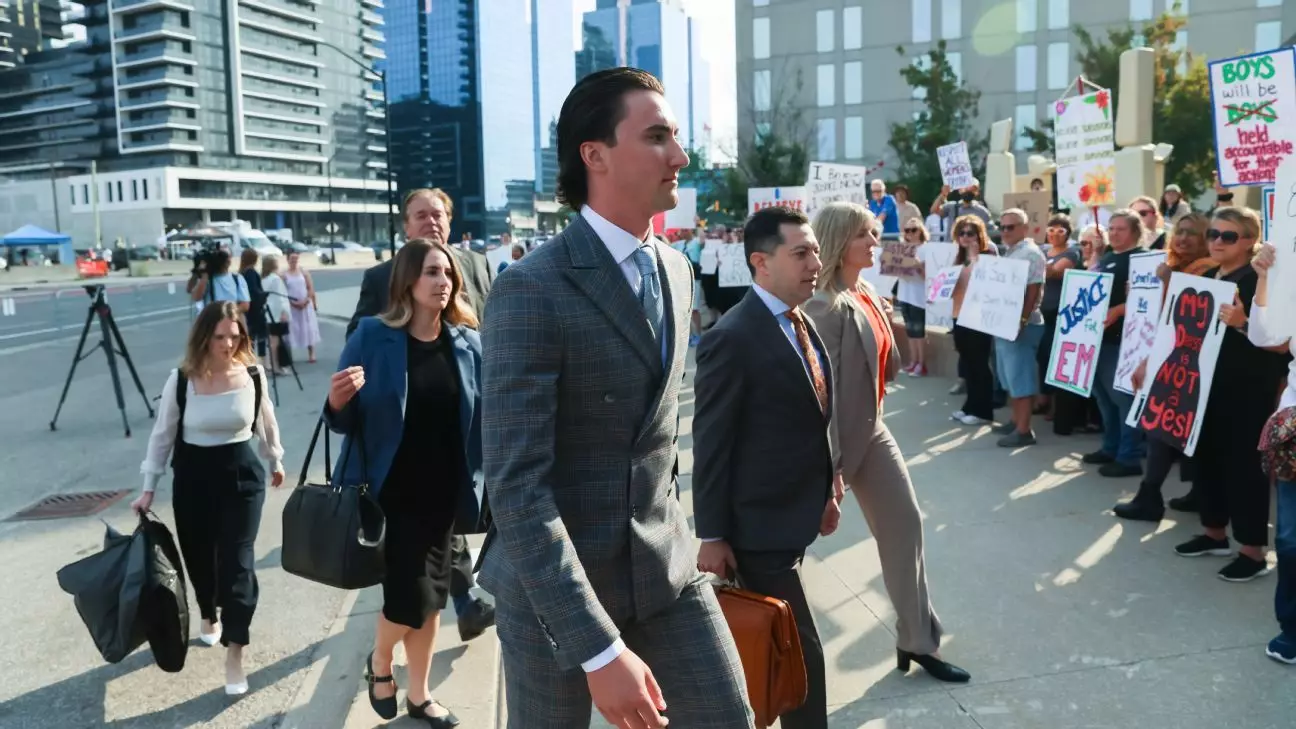In recent developments, five former junior hockey players have been acquitted of serious sexual assault charges, a verdict that not only underscores the intricacies of legal proceedings but also raises profound questions about the societal and institutional responses to such allegations. While the court’s decision marks a culmination of a meticulous judicial process, the aftermath reveals a polarized landscape where justice and public opinion often collide. This case exemplifies the importance of allowing the legal system to operate independently, free from premature judgments influenced by media narratives or societal biases.
The court’s detailed assessment, led by Justice Maria Carroccia, highlights the critical need to scrutinize credibility and consistency in witness testimony. Her observations about the complainant’s potentially exaggerated intoxication and her tendency to shift blame suggest that not all evidence meets the rigorous standards necessary for criminal conviction. This reminds us that legal verdicts should rest on factual clarity rather than emotional reactions or societal pressures. The ruling, therefore, embodies a fundamental principle: in the pursuit of justice, the truth must prevail over assumptions and sensationalism.
The Impact on Athletes and the Sports Community
The repercussions extend beyond courtroom walls, deeply impacting the careers and reputations of the accused athletes. The National Hockey League (NHL) and the Players’ Association’s responses reflect the tension between upholding due process and maintaining an image of integrity within the sport. The league’s stance of ineligibility during the review process indicates a cautious approach, yet it also ignites debate about fairness in disciplinary procedures. Some argue that such measures risk prejudging individuals before definitive legal judgments, potentially depriving athletes of their rights based on allegations alone.
Conversely, the Players’ Association advocates for a more balanced approach, emphasizing that the players should have an opportunity to resume their careers, especially when proven innocent. This situation exposes the limitations of external institutional responses that can sometimes amplify harm to individuals who are ultimately cleared of charges. It serves as a reminder that protecting athletes’ rights and presuming innocence until proven guilty is paramount, even amidst the emotional turbulence that such allegations evoke.
The Critical Role of Society and Media in Shaping Justice
This case underscores a broader societal challenge: how do we reconcile fully supporting victims of assault with respecting the rule of law? The media’s portrayal of such stories often leans toward sensationalism, which can influence public perception and create a presumption of guilt before due process unfolds. The vehement reactions from different stakeholders reveal a landscape where justice isn’t just a legal matter but a social construct fraught with emotional and moral complexities.
It’s essential for society to foster a culture of critical thinking and patience. Accusations must be investigated thoroughly, and verdicts must be grounded in evidence, not speculation or societal pressure. The acquittal of these athletes should serve as a call for a more nuanced understanding of justice—a reminder that convictions should never be driven by outrage but by indisputable truth. Only by maintaining this balance can society truly respect both victims and the foundational principles of fairness and legal integrity.


Leave a Reply